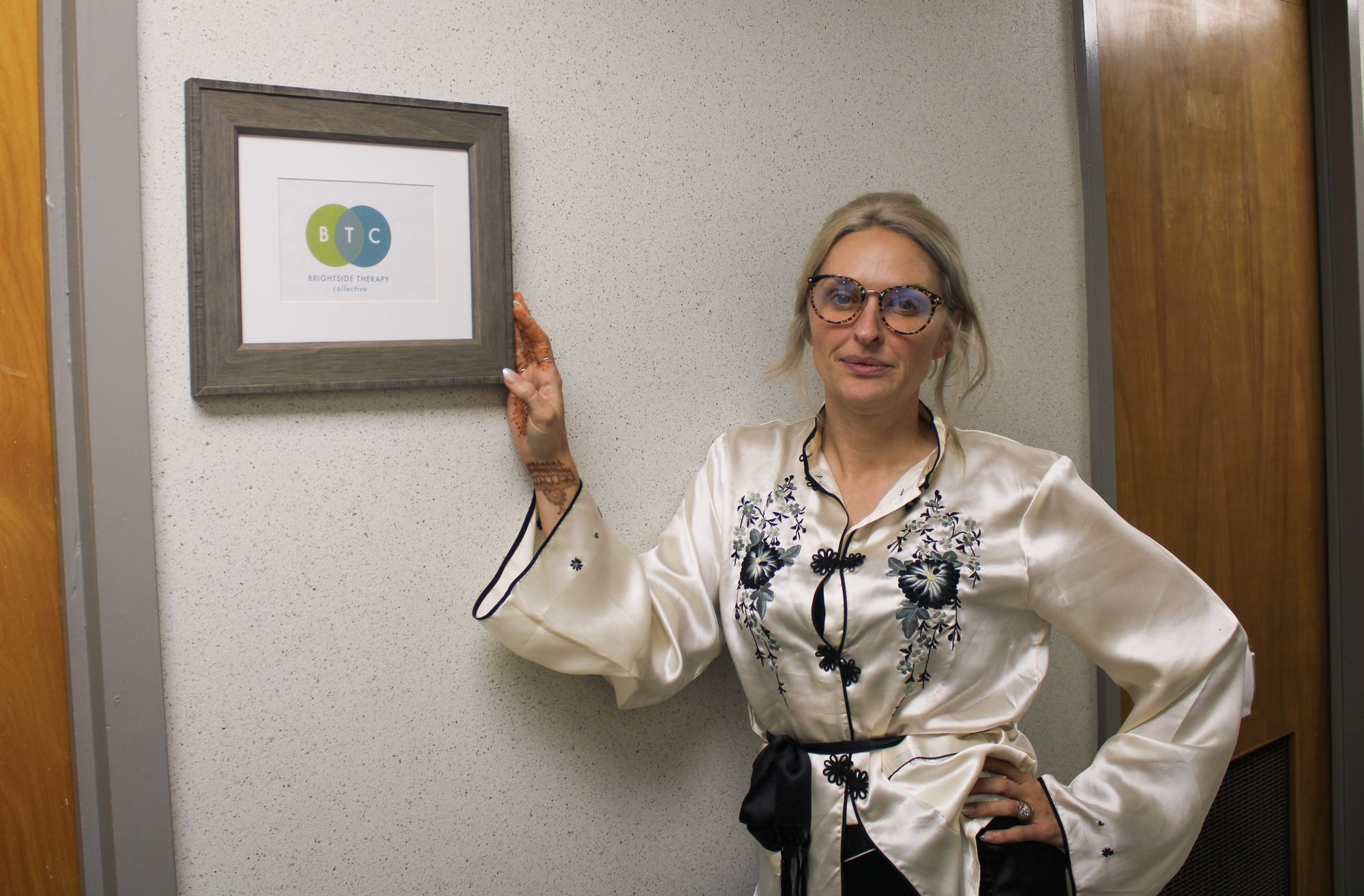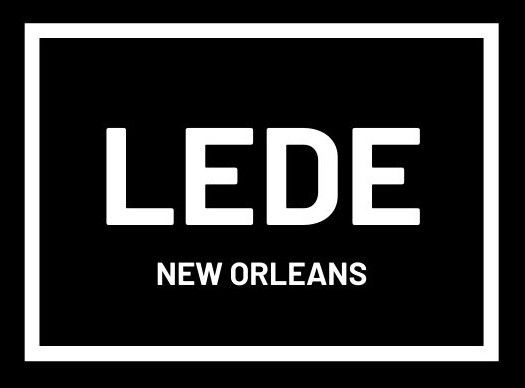What are professionals saying about mental health in New Orleans?

Behind This Story
This article is part of "Get Ya Mind Right," a multimedia content series and event exploring mental wellness and mental health care access in New Orleans. The series was produced by the Fall 2022 Lede New Orleans Community Reporting Fellows who spent 16 weeks researching, completing interviews and documenting local stories around mental health and mental wellness. If you or someone you know is struggling or in crisis, help is available. Call or text 988 or chat 988lifeline.org
By Nia Woodside
Ever since Hurricane Katrina hit New Orleans on August 29, 2005, the city’s health care system has struggled to replenish its pre-storm capacity to satisfy the demands of returning residents. The issue of subpar mental health resources dates back further than 2005, but the closure of the city’s biggest psychiatric facility in Charity Hospital intensified the city’s mental health crisis. Addressing the mental health care crisis is connected to the local fight for civil rights and environmental justice, and so many other issues.
It’s no secret that our community has a plethora of obstacles that hinder us from accessing therapeutic care. For years, people have been working on the challenge of affordable, quality mental health care in New Orleans, where 40% of the community is enrolled in Medicare. Fortunately, people like Dr. Elise Johns and Brightside Therapy Collective have devoted their careers to bridging the gap between care and community members.
The Brightside Therapy Collective is a nonprofit private practice group with a mission to provide affordable mental health services in and around New Orleans. In November, Dr. Johns invited Lede New Orleans to check out one of the collective’s shared office spaces in Central City. The office was housed in a historic Baronne Street mansion alongside offices for a range of health and wellness, entertainment and tech companies.
In addition to boosting access to care, the goal of the collective is to “become a training resource for future mental health providers in a creative and constructive space, allowing them to thrive and take their learned experience into the greater community as a whole,” according to its website. The collective includes mental health care professionals–both established and early-career–as well as college students studying therapy, who volunteer their time to support patients.
The goal, Johns said, is to offer accessible intervention with an emphasis on a holistic approach to mental health care for both the individual person and the community at-large. Johns noted this approach enables community members to become more educated about mental health, as well as the resources which support it.
Johns studied psychology at the University of Georgia and received her doctorate degree in counselor education from the University of New Orleans. Johns worked in pharmaceutical sales early in her career, but was eventually called to the field of clinical psychology. In our conversation, we dug into what therapy is and how it can help, and talked about how to overcome common obstacles to accessing mental health care. Here are some snippets from our exchange. This conversation has been edited for length and clarity.

What should a person look for when they’re seeking mental health intervention?
Comfort. There’s a little bit of a challenge that comes with the process of counseling. There will be discomfort in the process because you’re looking to move forward and grow. You want to make sure your voice is heard, [and] you want to make sure that it’s a space that feels authentic for you.
Can you give us a feel for the range of holistic mental health care practices that exist in the greater New Orleans community?
I will always advocate to have somebody there for you — just having that clinician that you could go to, [who] can hold a safe space for you, and give you the tools to process. Because the clients are always doing the work, we’re here to help with tools and processes.
Having these holistic healing spaces creates that balance for us, right? It’s nice to say, “I can go to this other space, tangentially talk about mental health, put my hands in the dirt, or sit in another space and talk to people they’re doing.” At various organizations, we’re all kind of working on different conversations, like at Dream House Lounge. I go sit there and talk about mental health. [But] we still advocate for having your mental health professional and finding a good balance for yourself.
Our website has two holistic community practitioners. Everybody’s mental health journey is different. What feels comfortable for you at one time may not be the thing you want later. So I think it’s incredibly important to know you have choices and resources.
For someone interested in talking to a therapist, where should they start?
The process can be very difficult. Look at Psychology Today, it’s a good resource. If you have a few keywords that you can write down, such as “anxiety” or “negative relationships,” you can kind of sort by keyword, area, fee scale or do they take insurance? Generate a list of about 10 to 15 providers that you might be interested in and start calling. Ask if they could do a 15-minute consult, or if you can schedule an initial appointment to go in and get a feel for who they are. Because discomfort is inherent in the process, give it a few sessions. You want to make sure that you’re not moving between therapists, keeping you from doing the work you need to do.
What limitations or obstacles exist for private practices when it comes to accepting Medicaid?
The whole insurance process in general can be difficult. [We] have to get credentialed on the insurance panels individually. And that process can take up to 90 days. Sometimes it does take significantly longer, just kind of going back and forth and making sure the information is correct. Every so often, Medicaid will review the charge and that creates extra paperwork that [clinicians] are doing, and you get a certain number of sessions per [client]. Once they hit that number of sessions, you have to do what’s called a “reauthorization,” and give details and information as to why that individual would need to continue to stay in counseling.
You mentioned that you started doing this work in part because when you were younger your therapist wasn’t meeting your needs. What was that like?
I went to a counselor when I was younger and I wasn’t feeling heard. You want to feel heard. I think the best way to describe it is that they didn’t meet me where I was. They made me just another one of everyone else. I was 15 and, at the time, the prompts they were giving me had nothing to do with what I was going through in life.
What advice do you have for those reading who might have had a negative experience with seeking out mental health care services?
Don’t be dissuaded. I know it can be a hard process, you make a lot of calls. And maybe it’s cost prohibitive, insurance prohibitive, or time prohibitive. Keep calling. That can make the process a little bit easier in that space of finding somebody that may be a better fit.
What does success look like for Brightside Therapy Collective? What’s your vision for mental health care access in New Orleans?
My two favorite therapy words will always be “community” and “balance.” What I would like to see is the clinicians that work with us go out and develop a sense of community. The ones that have been with us and left and started their practices, we have wonderful cross-referrals already. We have clinicians out there that feel comfortable taking insurance, clinicians who will call and consult with each other. The longer we stay the bigger the footprint is, the more people are connected, and the more resources there are for the community and the more balance we have. That’s my hope moving forward.
Nia Woodside is a Fall 2022 Community Reporting Fellow. Woodside, 20, grew up in New Orleans and is now a student at Loyola University New Orleans studying psychology. Woodside has previously interned with WYES PBS and NOLA.com.
Kimberly Kaye edited this piece.
This piece is available to republish under a Creative Commons license. Read Lede New Orleans’ publishing guidelines here.
Support Lede New Orleans and its community-centered reporting by becoming a supporting donor.

